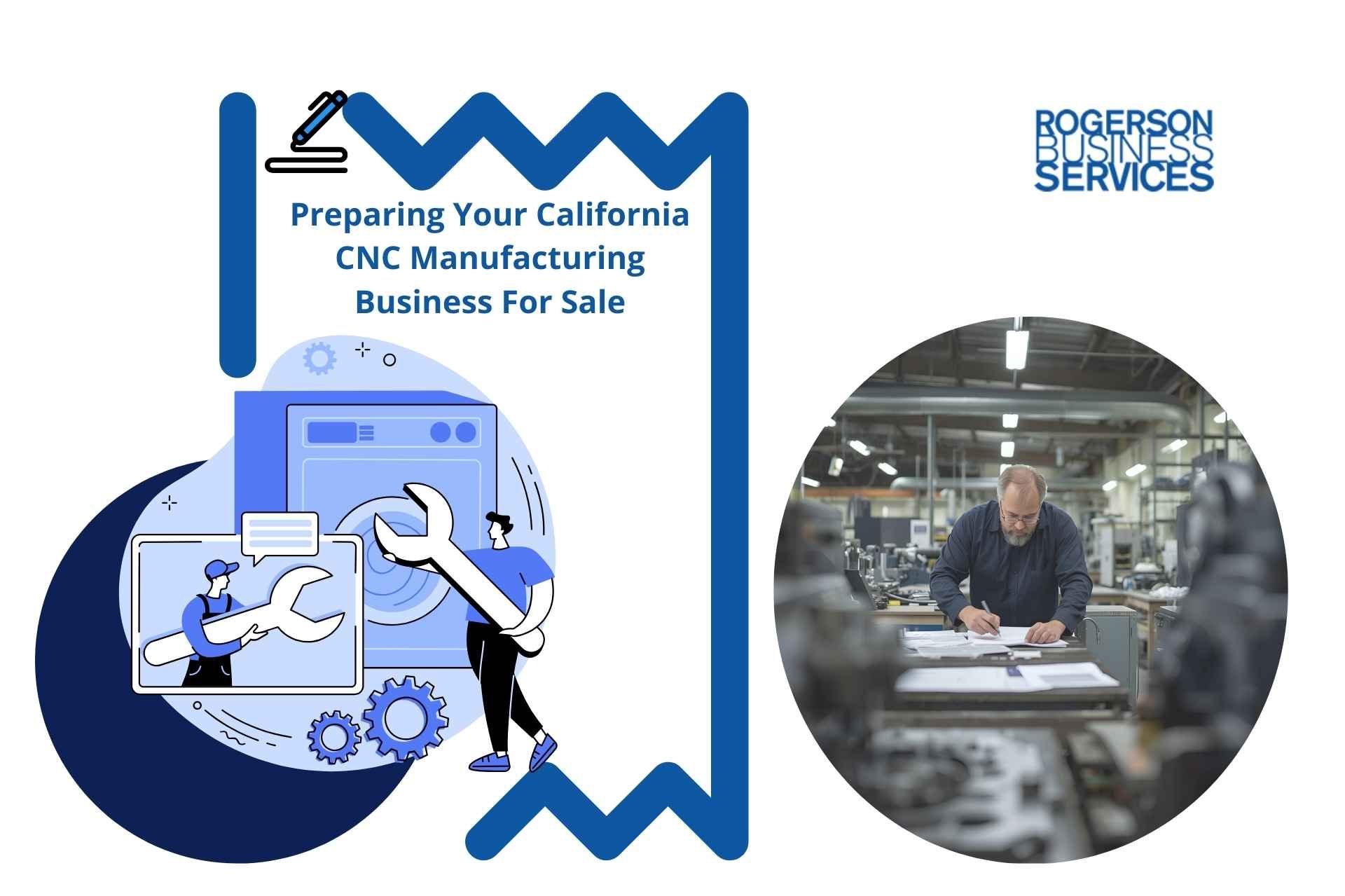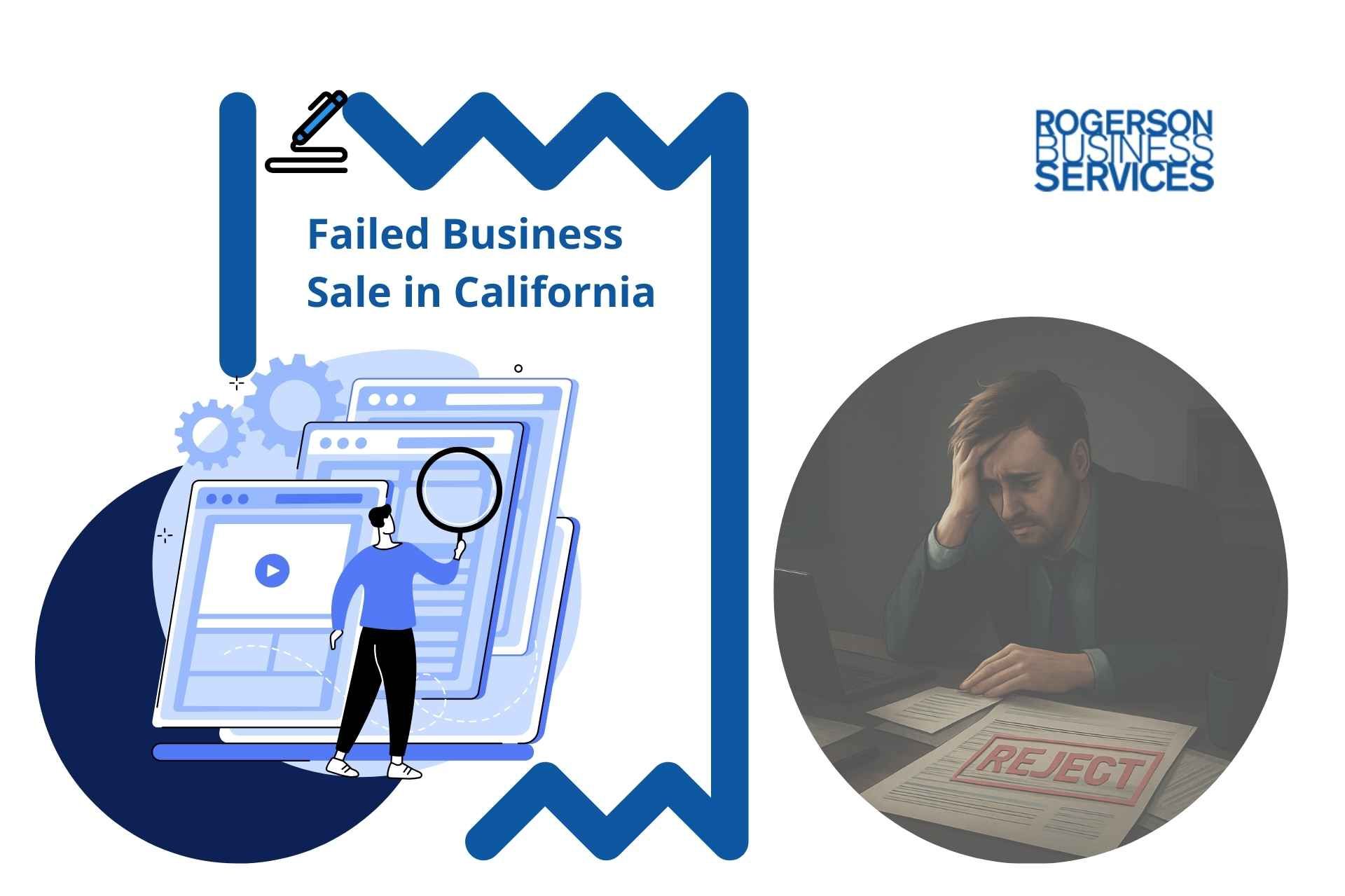If I Sell a Business How Much Tax Will I Pay?
Selling a Business Tax Strategies

No one likes talking about capital gains taxes, and they certainly do not like paying them. However, that does not change the fact that taxes are a part of everyday life, especially in selling a business tax.
Knowing the ins and outs of the tax code can be advantageous for lower mid-market business owners, but a business simply does not have the time to study and understand all these details.
Your CPA or tax preparer may not have the time to give you the full picture of the amount of tax you have to pay as their skill is focused on preparing and filing tax returns to keep your business from attracting either an IRS audit, an audit by the Franchise Tax Board (FTB) if you are in California, the California Department of Tax and Fee Administration (CDTFA) if you collect and submit California sales tax, the Employment Development Department (EDD), or some other California State agency with the legal right to examine your financial statements. The stakes are higher still if you are a business owner that is thinking about selling your business.
As you may have guessed, there are taxes on selling a business. That begs the question, if I sell my business, how much tax will I pay?
What Happens When You Sell a Business
When you sell your business, the buyer will typically bring a cash down payment which you receive at the close of escrow when the transaction closes.
If the buyer requires a third-party loan, this will be part of the escrow closing process and will be paid to you also when the transaction closes. Federal and state taxes are then due on that money in the year the business sale closes.
As the seller of the business, if you provide any seller finance, the tax is not due and payable until you receive that money and in the year you receive it.
For example, if you carry Seller Notes for 5 years and are paid every month, the tax is not due on that money until the buyer pays it to you and in the year you receive the money.
Purchase Price Allocation
One of the requirements when closing the sale of a business is for the seller and buyer to agree on the Purchase Price Allocation of the business.
As the owner of the business, you have been allowed to write off business expenses for tax purposes; this includes being able to depreciate hard assets or, if you bought the business previously, get a tax benefit on the goodwill of the business you bought with a deduction called Amortization.
Now you are selling the business, the IRS wants the seller and buyer to negotiate and agree upon a tax structure that comes into effect when the sale of the business closes.
To report that agreed-upon tax structure, the IRS wants the seller and the buyer to each submit IRS tax form 8594 in the year the sale of the business closes. A seller and buyer can each complete this form themselves, but it is typical for the CPA for each party to assist them.
One of the things to know about selling a business is that the Internal Revenue Service is not so much interested in the sale of your business name but more so the
value of your business assets.
Business assets include properties and tangible things of value that the IRS will want to collect tax on, and so the reason both the seller and the buyer have to separately complete and submit
IRS form 8594.
In theory, you could pay less in taxes by selling your business name or stock, but the buyer will want to negotiate this with you as it may leave them in a poorer tax position.
Capital Gains Tax on Sale of Business
Another thing you may have to look forward to is the capital gains tax on the sale of a business, which brings us to capital gains tax strategies for selling a business. Without capital gains tax strategies for selling your business, you could pay the IRS and State of California a lot of the sale price of the business. Take this into account as part of your business exit planning before selling your business.
When you
sell a lower mid-market business, you will most likely have to pay some portion of a capital gains tax. Capital gains refer to making a profit from an investment. In some cases, part of the capital gains tax sale of a business can be avoided or reduced.
The capital gains on selling a business are reduced via deduction properly structure your
Definitive Purchase Agreement. How your
Definitive Agreement
is structured is key to learning how to avoid capital gains tax on business sales, but bear in mind what will be good for the seller is typically not good for the buyer, and so this is part of the negotiations when selling the business.
Another thing to keep in mind is, in most cases, you will not have to pay 100% of your capital gains tax. Usually, people only have to pay around 50% on their capital gains. There are other strategies, though; we will explain these shortly.
Farms, fishing businesses, and small business corporation shares can qualify for a significant deduction on capital gains tax. For example, if you own and sell farmland with farm equipment, tractors, etc., you may qualify for a
capital gains deduction
that will exempt you from paying income tax on the sale.
How Is Goodwill Taxed When Selling a Business
At this point, you might be asking yourself, how is goodwill taxed when selling a business?
That’s a great question! The sale of business goodwill tax treatment can play a major role in determining how much you will have to pay in taxes after selling a business.
When someone buys a business, it typically includes an item called goodwill. The typical method to calculate the amount of goodwill is to put a value on all the hard items, such as Fixtures, Furniture and Equipment, Inventory and Leasehold Improvements, then the soft items, such as Covenant Not to Compete and Training. Finally, simply allocate the balance of the purchase price to goodwill.
If the business's goodwill is considered
personal goodwill, it is taxed at an individual shareholder level, which means the rate is more favorable. However, if it is not considered personal goodwill, you could incur double taxation in which you are taxed at both the corporate level and individually.
This also depends on the legal entity of the business, such as it being a
C Corporation
as opposed to an
S Corporation
or LLC etc.
Managing the Tax Implications of Selling a Business
When it comes to managing the tax implications of selling a business, you could consult with a tax attorney or your CPA or both.
Introducing Mr. Ed Cotney from Olympus Tax
While these tax professionals can definitely help you save some money, Rogerson Business Services would like to introduce you to Mr. Ed Cotney, who owns and operates Olympus Tax.
I’ve known Ed Cotney for about 8 years or so, and when I have a question about how I can save a business owner some tax when selling their business, I always mention
Ed Cotney
and the service he provides.
Ed is an interesting guy as he has a funny accent. Well, it is probably not too funny if you were like Ed and came from Alabama.
One of Ed’s motivations in life is to help business owners pay as little tax as they can when selling their business. Ed offers to provide a consulting service to the business owner and provides a written report on his recommendations if the business owner chooses to hire him.
It will require the business owner making decisions prior to selling the business, if the buyer is willing to work with the seller or or what is more normal, leaving the seller to execute some tax saving strategies after the sale of the business closes.
Selling a business does not necessarily mean that you will have to pay an arm and a leg in taxes. If you structure your sales contract properly, file everything promptly and appropriately with the IRS, and consult with a professional, you should be able to save a great deal of money.
One Final Suggestion
Be sure you do everything by the book. While you should take advantage of as many legal deductions you can get, make sure everything is reported fully and correctly so you can enjoy the gain you made from selling your business and the next phase of your life.
If you are a retiring business owner looking to exit your lower middle market business in California, here are five tips to get you started:
1. Don't wait until the last minute to start planning your exit. The process of selling a lower middle market business can take a long time, so it's important to start early.
2. Have a clear idea of what you want to get out of the sale. Know your goals and what you're willing to negotiate.
3. Choose the right type of buyer. Not all buyers are created equal, so do your research and find the right one for your business.
4. Be prepared for a lot of due diligence. M&A buy-side due diligence is when buyers will want to know everything about your business, so be ready to provide documentation and answer questions.
5. Be flexible with the terms and conditions of the deal. It's important to be open to negotiation to get the best possible deal for your business.
Rogerson Business Services, also known as, California's lower middle market business broker is a sell-side M&A advisory firm that has closed hundreds of lower middle-market deals in California. We are dedicated to helping our clients maximize value and achieve their desired outcomes.
We have a deep understanding of the Californian market and an extensive network of buyers, which allows us to get the best possible price for our clients. We also provide comprehensive support throughout the entire process, from initial valuation to post-closing integration.
Our hands-on approach and commitment to our client's success set us apart from other firms in the industry. If you consider selling your lower middle market business, we would be honored to help you navigate the process and realize your goals.
If you have decided to value and then sell your lower middle market business or still not ready, get started here, or call toll-free
1-844-414-9600and leave a voice message with your question and get it answered within 24 hours. The deal team is spearheaded by Andrew Rogerson, Certified M&A Advisor, he will personally review and understand your pain point/s and prioritize your inquiry with Rogerson Business Services,
RBS Advisors.
Hey there! Can we send you a gift?
We just wanted to say hi and thanks for stopping by our little corner of the web. :) we'd love to offer you a cup of coffee/tea, but, alas, this is the Internet.
However, we think you'll love our email newsletter about building value and properly position your company before transition/exit your business ownership.
As a special welcome gift for subscribing, you'll also get our helping and educational guides, tips, tutorials, etc.. for free.
It's filled with the best practices for retiring serial business owners like Dan Gilbert, Larry Ellison, Warren Buffett, and many more.
Just sign up for our emails below.


